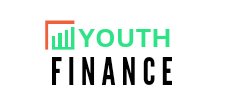About Course
Welcome to the Financial Literacy Beginner Course. In this course, we will learn how to take control of our money by identifying our expenses, our needs, and our wants.
This course is designed to provide beginners with essential knowledge and skills to navigate the world of personal finance confidently. From budgeting and saving to investing and managing debt, participants will gain a solid foundation in financial literacy to make informed decisions and build a secure financial future.
To get the most out of these lessons, watch the videos with your own financial situation in mind, and then take action. The activities provided are designed to help you sort out where your money is going and get you started creating an effective budget that will lead you to your financial goals. In this module, we will explore budgeting and managing expenses. Have you ever gotten close to the end of the month, only to realize that you had run out of money? What did you do? Did you go without? Borrow money from a friend? Maybe you just floated the expense on a credit card. There’s an old saying, “If you don’t manage your money, your money will manage you.” Imagine for a moment that your current supply of money has been delayed or lost. Maybe your student loans were delayed a few months, or you lost your job. How long would you last before the lack of money started to control your life?
Course Content
Financial Literacy 101
-
Introduction to Financial Literacy Introduction – Why Care? It’s Your Money!
01:00 -
Fixed, Variable, & Periodic Expenses
01:12 -
Understanding Needs vs Wants
01:31 -
Cut Expenses – A Penny Saved is a Penny Earned
01:24 -
Signs of Debt Distress
01:36 -
Financial Literacy 101 Quize
Student Ratings & Reviews

